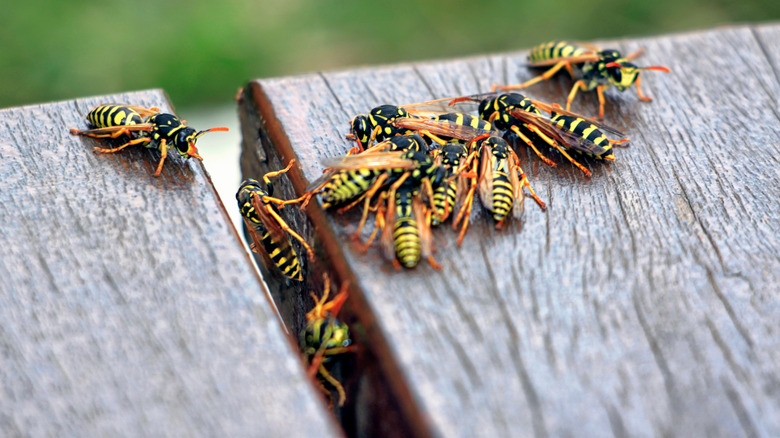If you've ever encountered a groundhog in your backyard, you know how they can be both fascinating and frustrating at the same time. Groundhogs, also known as woodchucks, are notorious for digging up gardens and burrowing under patios. In this article, we will explore various ways on how to repel groundhogs effectively, ensuring your garden remains safe from their destructive tendencies.
Groundhogs are large rodents that can weigh up to 14 pounds. They are primarily herbivores, enjoying a diet rich in leafy greens, vegetables, and fruits. Since they are attracted to freshly planted gardens and flower beds, it's crucial to implement preventive measures right from the start. Lets delve into the remarkable techniques that can help you deal with groundhogs.

Understanding Groundhogs: Their Behavior and Habits
Before we explore various methods to repel groundhogs, its vital to understand their behavior. Groundhogs are generally active during the day, specifically in the early morning and late afternoon. They are excellent diggers and can create extensive burrow systems underground.
Groundhogs tend to use their burrows for hibernation during winter and seek shelter from predators. They can also create multiple openings to their burrow, making it a challenge for homeowners. Understanding these habits can help you target the best methods for repelling them.

1. Fencing: A Strong Barrier
One of the most effective ways to repel groundhogs is by installing a sturdy fence. A well-constructed fence should be at least 3 to 4 feet high and buried at least a foot underground to prevent them from digging underneath it. Opt for a fence made of wire mesh or welded wire, which can deter most digging animals. Make sure the fence is slanted outward at a 45-degree angle to enhance its effectiveness.

2. Natural Repellents: Scents They Dislike
Groundhogs are sensitive to strong odors, and utilizing natural repellents can help keep them at bay. Here are a few scents that have proven effective:
- Garlic: Create a garlic spray by mixing crushed garlic with water. Spray around your garden to deter groundhogs.
- Mint: Groundhogs dislike mint. Plant mint around your garden or use peppermint oil to create sprays.
- Castor Oil: This oil is infamous for repelling groundhogs. Mix castor oil with dish soap and water, and spray around the area.
To learn more about repelling pests using scents, check out this article on repelling mosquitoes.

3. Setting Traps: A Humane Approach
If groundhogs persist despite your efforts, consider setting a trap. It is essential to check your local laws regarding the trapping and relocation of wildlife. Use a live trap that is large enough to capture groundhogs.
Once captured, contact your local wildlife control for proper relocation. Remember, it's vital to be humane when dealing with wildlife and follow all local regulations.
4. Land Management: Reduce Attractions
Another vital aspect of repelling groundhogs is to manage your landscape effectively. Here are a few ways to minimize their access to food:
- Remove Debris: Keep your yard clean and free from debris like tall grass or piles of leaves.
- Secure Compost Bins: Ensure compost bins are covered and inaccessible to groundhogs.
- Pick Ripe Fruits: Harvest fruits and vegetables promptly to reduce their attraction to your garden.
These simple steps can significantly reduce the chances of groundhogs invading your space.
5. Planting Pest-Repellent Plants
Many plants can act as natural repellents against groundhogs. Consider planting:
- Lavender: The strong scent of lavender can deter groundhogs.
- Rhubarb: This plant is not only delicious but also acts as a deterrent.
For more information on pest-repelling houseplants, check out this resource.
Conclusion
Learning how to repel groundhogs might require a bit of trial and error, but with the right strategies, you can protect your garden effectively. Fencing, natural repellents, humane trapping, effective land management, and planting pest-repelling plants are all great options to deter these critters. Start implementing these methods today to maintain a peaceable coexistence with groundhogs!
FAQs
1. Are groundhogs dangerous to pets?
Groundhogs are generally not dangerous to pets, but they can exhibit aggressive behavior if threatened.
2. What other animals do groundhogs attract?
Groundhogs can attract predators such as coyotes, foxes, and domestic dogs due to their burrowing habits.
3. How can I tell if groundhogs are in my area?
Look for burrows, unusual gnaw marks on vegetables or plants, and droppings around your yard.
As an Amazon Associate, I earn from qualifying purchases.
